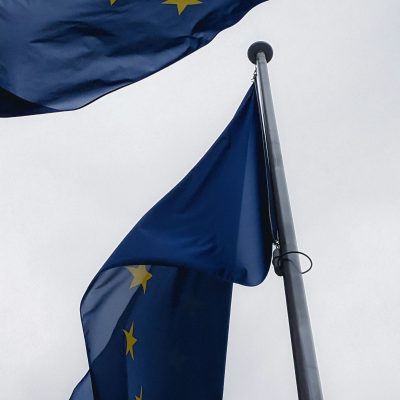De quelle universalité les valeurs européennes sont-elles le nom?

Depuis plusieurs années, les valeurs politiques sur lesquelles repose l’Union européenne sont mises en question. Sur le plan interne, les courants nationaux-populistes autoritaires et d’extrême-droite néo-nationaliste hostiles au libéralisme politique mettent en cause ces valeurs. Phénomène plus récent, les « valeurs européennes » sont aussi remises en cause à gauche de l’échiquier politique sur fond d’une critique post-coloniale des Lumières qui ne seraient que le masque d’un impérialisme culturel occidental. Cette critique s’accompagne d’une mise en question de l’universalité des valeurs issues des Lumières au nom du rejet de la prétention occidentale et plus spécifiquement européenne à revendiquer l’origine des « valeurs démocratiques » et à affirmer le caractère « universel » des droits individuels issus de ce mouvement intellectuel et politique européen. Les « valeurs européennes » seraient impérialistes et n’auraient été que le « masque » de l’universel destiné à dissimuler un projet de domination. À l’extérieur de l’UE, ces valeurs sont également contestées dans le contexte d’affirmation des régimes autoritaires, dictatoriaux et
totalitaires, notamment en Chine et en Russie, qui cherchent à refaçonner l’ordre mondial en affirmant que les valeurs qui le sous-tendent sont occidentales et non-universelles.
Ce débat très actuel pose de multiples questions. Il faudrait d’abord définir quelles sont les « valeurs européennes » en question mais aussi préciser ce que l’on entend par « universel » : cela signifie-t-il que les valeurs européennes peuvent être transposées telles quelles partout ? Que ces valeurs ont des sources extérieures à l’Europe ? Poser dans ces termes, le sujet de la dimension universelle des valeurs européennes peut amener à deux questions qui n’ont rien à voir et appellent d’ailleurs des réponses opposées et relativement simples à établir. Il est intéressant de noter que le sujet de la dimension universelle des valeurs est parfois mêlé à la question de l’identité européenne ; cette association d’idées révèle le malaise inhérent à la thématique. En effet, le débat sur ces sujets présente l’inconvénient de structurer la discussion dans des termes très polarisés, que Myriam Revault d’Allonnes a récemment résumés très clairement : « La dimension universelle des valeurs européennes relève-t-elle d’une universalité abstraite, a priori, que certains appellent “surplombante” parce que, partant d’une origine précise et assignée (une identité particulière), elle prétend uniformiser et aligner sur son propre modèle ce qui est autre que soi ? C’est la critique constamment adressée à ce type d’universalité par ceux qui y voient, à juste titre, l’expression dissimulée d’une hégémonie (économique, coloniale, culturelle). Cette “universalité” n’est effectivement que la transplantation unilatérale d’une forme singulière effectivement dominée par la modernité occidentale. Or c’est précisément celle qui se trouve invoquée dans la revendication d’une identité européenne monolithique, investie par les valeurs chrétiennes et en quête d’un récit englobant ». Dans cette perspective, la difficulté à laquelle nous sommes aujourd’hui confrontés est de trouver une voie permettant de « sortir de cette logique binaire où s’affrontent d’un côté un universel de surplomb auto-proclamé et de l’autre la critique d’une universalité toujours réduite au discours de la domination ».
Dans la droite ligne de ce questionnement, les développements qui suivent ont pour seul objectif de tenter d’apporter une contribution à ce débat très épineux et cherchera pour cela à : clarifier ce que l’on entend quand on évoque les « valeurs européennes » (1.) ; interroger la question de leur universalité en tentant d’éviter l’écueil du récit « civilisationnel » (2.) ; justifier la nécessité de reconnaître et de revendiquer l’« héritage des Lumières » européennes, « héritage local et pluriel » (3.).




